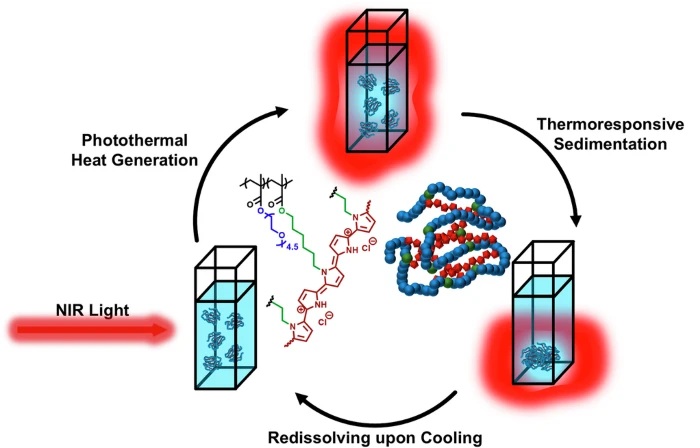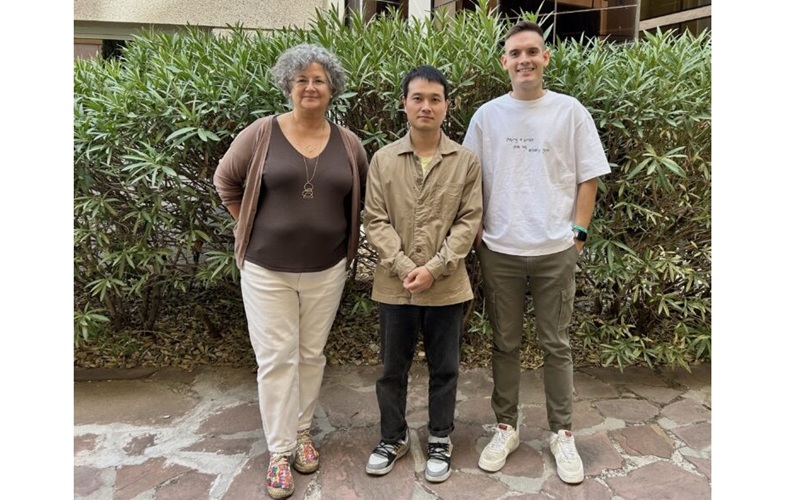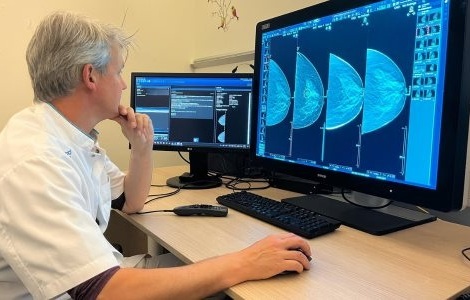Philips Launches Artificial Intelligence Platform for Healthcare
|
By MedImaging International staff writers Posted on 05 Apr 2018 |

Image: The HealthSuite Insights platform is designed to give data scientists, software developers, clinicians and healthcare providers access to advanced analytic capabilities to curate and analyze healthcare data, and offers them tools and technologies to build, maintain, deploy and scale AI-based solutions (Photo courtesy of Philips Healthcare).
Royal Philips (Amsterdam, the Netherlands) has launched HealthSuite Insights, including the Insights Marketplace, to support the advancing adoption of analytics and artificial intelligence (AI) in key healthcare domains. HealthSuite Insights, which made its debut at the 2018 HIMSS Conference & Exhibition (HIMSS18), gives data scientists, software developers, clinicians and healthcare providers access to advanced analytic capabilities to curate and analyze healthcare data, and offers them tools and technologies to build, maintain, deploy and scale AI-based solutions. Insights Marketplace will provide the healthcare industry's first ecosystem where curated AI assets from Philips and others are readily available for license.
The tools and technologies available through HealthSuite Insights already enable machine learning and deep learning applications in Philips' diagnostic imaging solutions, patient monitoring solutions, and oncology and genomics offerings. The platform allows Philips to leverage AI across these innovations by combining it with other technologies and gain a deep understanding of the clinical, operational and personal context for care professionals and patients/consumers.
The Insights Marketplace will initially offer assets supplied by Philips, while medically validated Philips assets will be added later this year. It will be further expanded in late 2018 to include assets submitted by third parties. AI assets built using the Insights Platform are designed to be secure irrespective of the execution environment, with sophisticated Identity and Access Management, integrated Blockchain services, and data collection and management services built in. The Insights platform can be deployed on a healthcare cloud infrastructure such as the Philips HealthSuite Digital Platform, or on premise at a provider site.
"The quality of your AI is only as good as the quality of the data you feed into it," said Jeroen Tas, Chief Innovation & Strategy Officer Philips. "We have designed HealthSuite Insights to be used by the people who work with patient data on a daily basis and have the contextual understanding; including doctors, clinicians and hospital managers. With the HealthSuite Insights platform, we give them the ability to bring all the relevant patient information together, curate the data and use the power of AI to support precision diagnosis, personalized therapy, early intervention and greater hospital efficiency."
The tools and technologies available through HealthSuite Insights already enable machine learning and deep learning applications in Philips' diagnostic imaging solutions, patient monitoring solutions, and oncology and genomics offerings. The platform allows Philips to leverage AI across these innovations by combining it with other technologies and gain a deep understanding of the clinical, operational and personal context for care professionals and patients/consumers.
The Insights Marketplace will initially offer assets supplied by Philips, while medically validated Philips assets will be added later this year. It will be further expanded in late 2018 to include assets submitted by third parties. AI assets built using the Insights Platform are designed to be secure irrespective of the execution environment, with sophisticated Identity and Access Management, integrated Blockchain services, and data collection and management services built in. The Insights platform can be deployed on a healthcare cloud infrastructure such as the Philips HealthSuite Digital Platform, or on premise at a provider site.
"The quality of your AI is only as good as the quality of the data you feed into it," said Jeroen Tas, Chief Innovation & Strategy Officer Philips. "We have designed HealthSuite Insights to be used by the people who work with patient data on a daily basis and have the contextual understanding; including doctors, clinicians and hospital managers. With the HealthSuite Insights platform, we give them the ability to bring all the relevant patient information together, curate the data and use the power of AI to support precision diagnosis, personalized therapy, early intervention and greater hospital efficiency."
Latest Imaging IT News
- New Google Cloud Medical Imaging Suite Makes Imaging Healthcare Data More Accessible
- Global AI in Medical Diagnostics Market to Be Driven by Demand for Image Recognition in Radiology
- AI-Based Mammography Triage Software Helps Dramatically Improve Interpretation Process
- Artificial Intelligence (AI) Program Accurately Predicts Lung Cancer Risk from CT Images
- Image Management Platform Streamlines Treatment Plans
- AI-Based Technology for Ultrasound Image Analysis Receives FDA Approval
- AI Technology for Detecting Breast Cancer Receives CE Mark Approval
- Digital Pathology Software Improves Workflow Efficiency
- Patient-Centric Portal Facilitates Direct Imaging Access
- New Workstation Supports Customer-Driven Imaging Workflow
Channels
Radiography
view channel
X-Ray Breakthrough Captures Three Image-Contrast Types in Single Shot
Detecting early-stage cancer or subtle changes deep inside tissues has long challenged conventional X-ray systems, which rely only on how structures absorb radiation. This limitation keeps many microstructural... Read more
AI Generates Future Knee X-Rays to Predict Osteoarthritis Progression Risk
Osteoarthritis, a degenerative joint disease affecting over 500 million people worldwide, is the leading cause of disability among older adults. Current diagnostic tools allow doctors to assess damage... Read moreMRI
view channel
Novel Imaging Approach to Improve Treatment for Spinal Cord Injuries
Vascular dysfunction in the spinal cord contributes to multiple neurological conditions, including traumatic injuries and degenerative cervical myelopathy, where reduced blood flow can lead to progressive... Read more
AI-Assisted Model Enhances MRI Heart Scans
A cardiac MRI can reveal critical information about the heart’s function and any abnormalities, but traditional scans take 30 to 90 minutes and often suffer from poor image quality due to patient movement.... Read more
AI Model Outperforms Doctors at Identifying Patients Most At-Risk of Cardiac Arrest
Hypertrophic cardiomyopathy is one of the most common inherited heart conditions and a leading cause of sudden cardiac death in young individuals and athletes. While many patients live normal lives, some... Read moreUltrasound
view channel
Wearable Ultrasound Imaging System to Enable Real-Time Disease Monitoring
Chronic conditions such as hypertension and heart failure require close monitoring, yet today’s ultrasound imaging is largely confined to hospitals and short, episodic scans. This reactive model limits... Read more
Ultrasound Technique Visualizes Deep Blood Vessels in 3D Without Contrast Agents
Producing clear 3D images of deep blood vessels has long been difficult without relying on contrast agents, CT scans, or MRI. Standard ultrasound typically provides only 2D cross-sections, limiting clinicians’... Read moreNuclear Medicine
view channel
PET Imaging of Inflammation Predicts Recovery and Guides Therapy After Heart Attack
Acute myocardial infarction can trigger lasting heart damage, yet clinicians still lack reliable tools to identify which patients will regain function and which may develop heart failure.... Read more
Radiotheranostic Approach Detects, Kills and Reprograms Aggressive Cancers
Aggressive cancers such as osteosarcoma and glioblastoma often resist standard therapies, thrive in hostile tumor environments, and recur despite surgery, radiation, or chemotherapy. These tumors also... Read more
New Imaging Solution Improves Survival for Patients with Recurring Prostate Cancer
Detecting recurrent prostate cancer remains one of the most difficult challenges in oncology, as standard imaging methods such as bone scans and CT scans often fail to accurately locate small or early-stage tumors.... Read moreGeneral/Advanced Imaging
view channel
3D Scanning Approach Enables Ultra-Precise Brain Surgery
Precise navigation is critical in neurosurgery, yet even small alignment errors can affect outcomes when operating deep within the brain. A new 3D surface-scanning approach now provides a radiation-free... Read more
AI Tool Improves Medical Imaging Process by 90%
Accurately labeling different regions within medical scans, a process known as medical image segmentation, is critical for diagnosis, surgery planning, and research. Traditionally, this has been a manual... Read more
New Ultrasmall, Light-Sensitive Nanoparticles Could Serve as Contrast Agents
Medical imaging technologies face ongoing challenges in capturing accurate, detailed views of internal processes, especially in conditions like cancer, where tracking disease development and treatment... Read more
AI Algorithm Accurately Predicts Pancreatic Cancer Metastasis Using Routine CT Images
In pancreatic cancer, detecting whether the disease has spread to other organs is critical for determining whether surgery is appropriate. If metastasis is present, surgery is not recommended, yet current... Read moreImaging IT
view channel
New Google Cloud Medical Imaging Suite Makes Imaging Healthcare Data More Accessible
Medical imaging is a critical tool used to diagnose patients, and there are billions of medical images scanned globally each year. Imaging data accounts for about 90% of all healthcare data1 and, until... Read more
Global AI in Medical Diagnostics Market to Be Driven by Demand for Image Recognition in Radiology
The global artificial intelligence (AI) in medical diagnostics market is expanding with early disease detection being one of its key applications and image recognition becoming a compelling consumer proposition... Read moreIndustry News
view channel
GE HealthCare and NVIDIA Collaboration to Reimagine Diagnostic Imaging
GE HealthCare (Chicago, IL, USA) has entered into a collaboration with NVIDIA (Santa Clara, CA, USA), expanding the existing relationship between the two companies to focus on pioneering innovation in... Read more
Patient-Specific 3D-Printed Phantoms Transform CT Imaging
New research has highlighted how anatomically precise, patient-specific 3D-printed phantoms are proving to be scalable, cost-effective, and efficient tools in the development of new CT scan algorithms... Read more
Siemens and Sectra Collaborate on Enhancing Radiology Workflows
Siemens Healthineers (Forchheim, Germany) and Sectra (Linköping, Sweden) have entered into a collaboration aimed at enhancing radiologists' diagnostic capabilities and, in turn, improving patient care... Read more



















